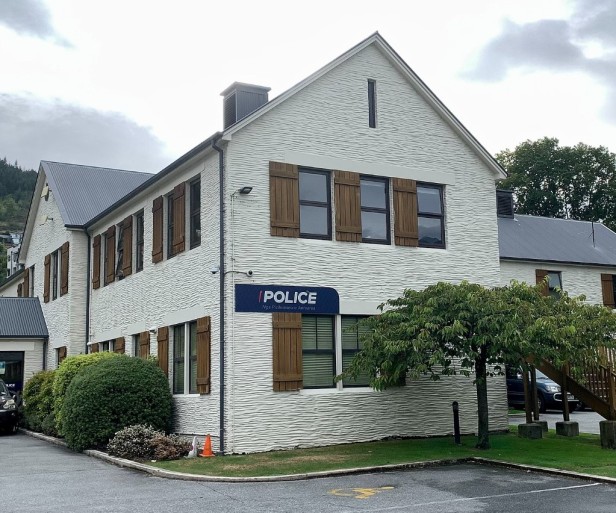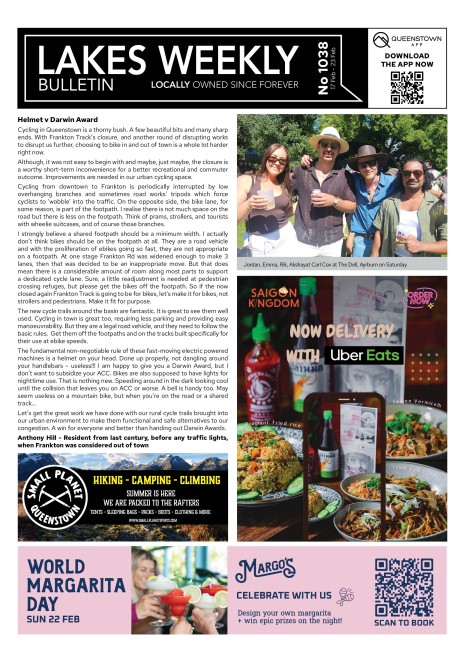Frustration boils over consenting delays

“Massive” delays and a perceived stalling of the development process, particularly engineering approvals, are being blamed by frustrated Queenstown property development professionals and contractors for driving up land prices and worsening the housing crisis.
Some say developer clients have even pulled the pin on planned subdivisions, frustrated at fighting lengthy red tape delays and Queenstown’s getting a reputation as one of the worst places in the country for consenting delays.
Council bosses say many delays are due to applicants not providing enough information which can then delay their consent process for some months. They’re disappointed at the criticism when staff are under so much pressure and working extremely hard to process what will be at least another $1billion-plus worth of construction this year. (See sidebar below for the full response)
However, resource management consultants, surveyors, engineers, and earthworks contractors say they’re tearing their hair out with the unreasonable delays, especially to gain engineering approval, so that title can be issued on much-needed sections.
Established consultants and contractors say the consenting systems are inefficient, costly and time consuming. “I’ve never seen it this bad,” says one long-time planning consultant. Most don’t want to be named in case of retribution and further delays for their clients at council level. “Development companies are at their wit’s end trying to get people to look at their projects. It’s incredibly slow,” he says.
They say the delays are stretching for “months and months” in some cases.
It's pushing development prices up and developers are “getting nervous” amid rising interest rates. “It’s putting them off proceeding,” he says. “Some sections are not being released and this is why. It’s having a direct impact on the availability of housing.” The more it costs to hold the land the more that increases the section price.
“You’d think if there’s a housing crisis the council would do everything in it’s power to make those sections available and streamline its consenting processes to be more straightforward, quicker and more efficient,” he says. “Apparently, it’s pretty bad around New Zealand but we’re at the worst end of the scale.”
Queenstown resource management lawyer Graeme Todd, who represented the council for many years, has practised locally for more than 40 years and says the delays are the worst he’s ever seen. “I don’t know what the problem is, but it seems that there’s generally an inability within the council and some council consultants to make a decision.”
He’s recently had a developer client pull out of a planned 17-lot subdivision, after appealing the council’s decision, and despite suggesting reducing the lots to five, he was told it would take four months for council staff to verify if they agreed that was within scope.
“My client wasn’t prepared to wait that long given there was no certainty.” That’s just one example, he says. “We have significant delays on all sorts of issues and matters that have been declined. The council will say people aren’t doing things correctly, but the council could streamline its processes to make it simpler,” he says.
Technical reports on applications are constantly being peer reviewed, prompting further delays, and Todd says it’s the clients who pay significantly increased costs for those delays.
“There’s no question it’s become significantly more difficult to get anything done in this district and professionals and clients fear consequences if they speak out.” He says the holding costs on land are becoming “prohibitive” because of the delays. “It’s systemic throughout the processing of applications, not just one problem. These applications need to be processed in an efficient and pragmatic manner.” He says he’s raised his concerns with council management to no avail.
An established local developer questions how many like him can’t complete subdivisions because of a lack of council infrastructure. He says it’s time for a serious look at service delivery performance and development delays due to council infrastructure not being available. He’d like to see an independent review with timelines and reasons for delays. “Some would say these are signs of an under resourced or unworkable culture - almost a broken system,” he says.
“The reason we have a housing crisis is because we don’t have the infrastructure in place – planning or engineering, to allow proposed subdivisions to be completed. It’s been under stress for a long time.” He estimates probably 1000 lower priced sections, such as the areas to the North of Jacks Point, aren’t available, because of an “onerous” consenting process. “It’s been prolonged to the point where it’s badly affected the number of residences being built,” he says.
A long-time earthmoving contractor says the delays are costing clients “massive money”. “They can’t get their titles issued in time. It’s the single biggest detraction from investing here.” Developers are telling him the delays to get sign off are just getting worse and worse and it’s probably happening nationally, all due to regulations. “Every report has to be peer reviewed, whether it’s a postage stamp or full-blown geotechnical report, virtually everything,” he says. “We’re talking months and months of pointless delays. There’s no drive to get housing stock to the market, no sense of urgency and cooperation, just piling on the bills,” he says.
Council responds to consenting delay claims
As a small council working through “a massive amount of development” the Queenstown Lakes District Council’s staff are under a lot of pressure and working hard to turn process the masses of applications within the required timeframes, general manager planning and development David Wallace says.
In defence of strong criticism from those in the industry about what they call “massive delays” in the consent process, Wallace says over 90% of resource consent applications have been processed within the statutory timeframes during the past four months, and currently 92% of building consents. The criticisms are “very disappointing” given how hard his staff are working to keep up.
“We’re all after the same thing. We certainly want to try and facilitate more housing,” he says. However, the council has to ensure that solutions put in place now don’t create problems later on.
QLDC has the fifth highest consent volume of all New Zealand local authorities and is a relatively small council, he says. “For the past two years we’ve issued building consents, many preceded by resource consents, with a total construction value each year of more than $1billion. That’s predicted to be maintained or increased this year,” Wallace says. “This is an incredible amount of development for this relatively small district, and it is considered we are performing well in the circumstances.”
Council staff face a huge variation of developments, often significant complex, and the work is completed as quickly as possible given the resources available, he says.
“There are generally very limited delays in the time it takes for the council to process resource consents when we have the information required to do that,” he says. Applications with the council for some months are generally because they don’t always include all the information required. He says the key to faster processing is for applicants to work to ensure complete and accurate information is provided with applications from the outset to ensure efficient processing at this very busy time.
The council’s building consent process did see some delays from June, due to significant changes to building consent requirements in May that resulted in a glut of applications submitted prior. However, inspections currently have only a two-day lag time which is a fast turnaround in a constrained environment.
Wallace says staffing constraints, as experienced by other councils in the region, haven’t helped. “But we are achieving a significant amount and always working hard to improve.”
There’s been a big improvement in engineering acceptance timeframes, which took 22 days to process from January, but only 14 days from June. If the council accepts sub-standard engineering designs that can lead to failure of assets potentially leaving ratepayers to foot the bill, he says. If designs are non-compliant these matters have to be raised, and this can take time due to resourcing constraints felt throughout the district.
However, he accepts there’s been some delays due to the council’s peer review process, adopted in 2015. “Unfortunately, there’s a national shortage of expertise in this space so it does take time to review the assumptions made and systems designed to ensure they work when we experience significant rainfall events, which are unfortunately becoming more frequent.” The council appreciates it must also be difficult for developers to engage expertise in this field, but experience shows the reviews are required. “Without them we would have accepted systems that would not have been fit for purpose and led to flooding of surrounding areas,” he says. “We are working to streamline this process, but it’s required to ensure people are protected from flooding.”








